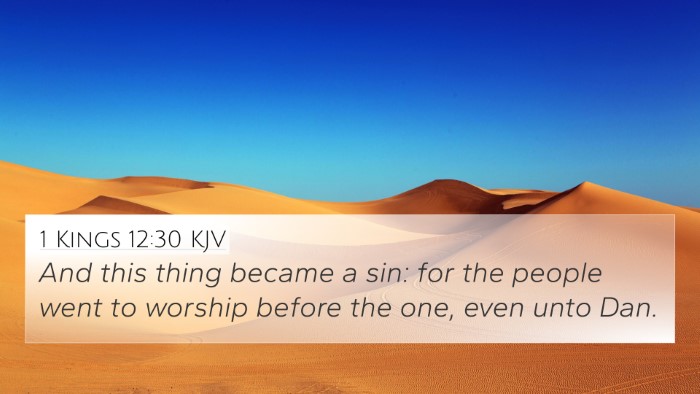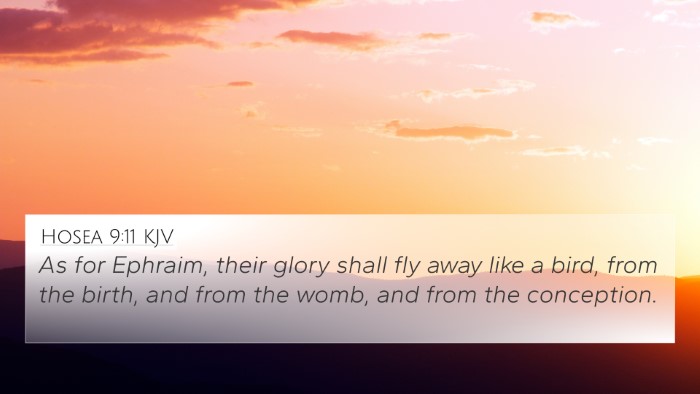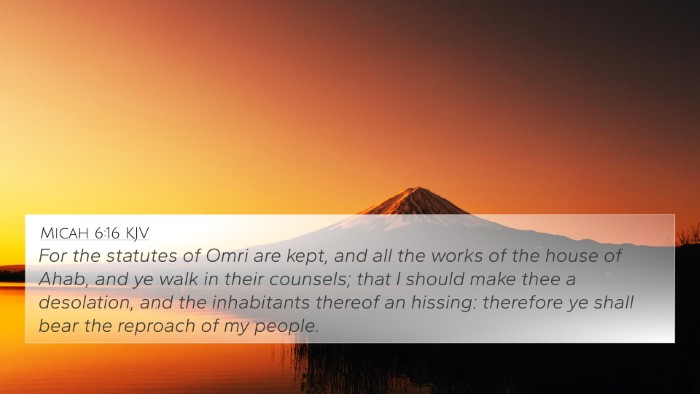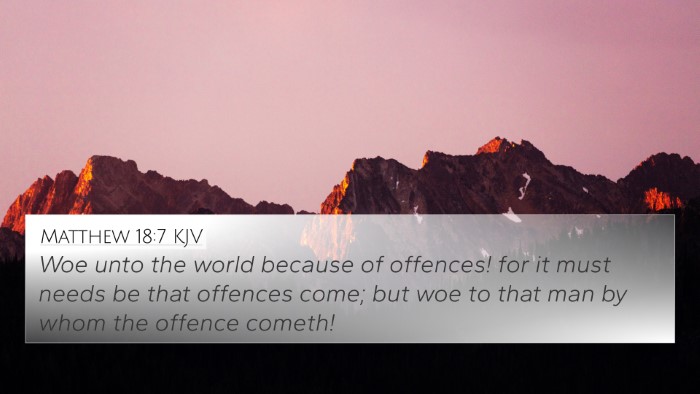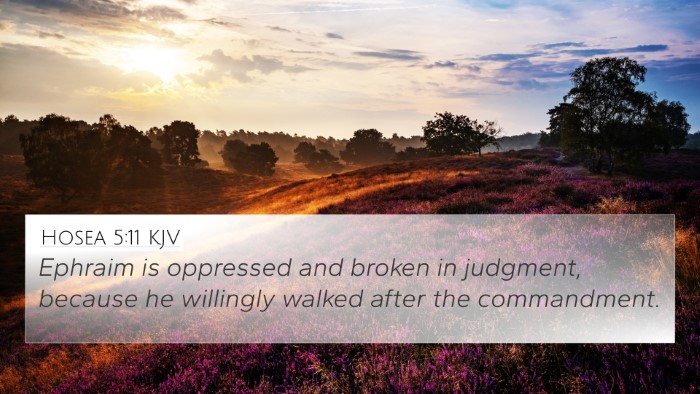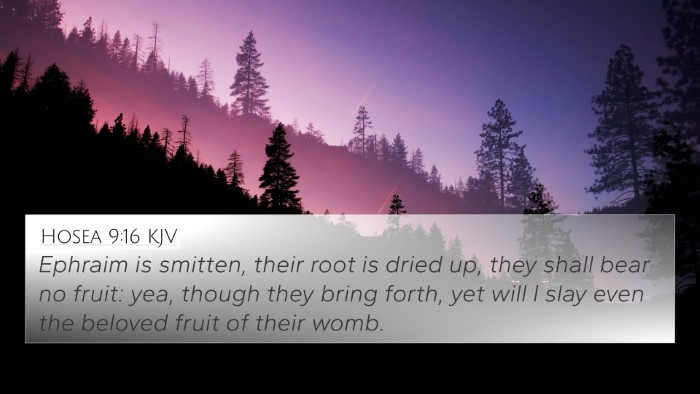Understanding 1 Kings 14:16
1 Kings 14:16: "And he shall give Israel up because of the sins of Jeroboam, who did sin, and who made Israel to sin." (KJV)
Summary of Insights
This verse highlights the divine judgment upon Israel due to the sins committed by Jeroboam, the first king of the northern kingdom. His actions not only led him astray but also instigated the people of Israel to follow in his sinful ways.
Commentary Insights
-
Matthew Henry:
Matthew Henry emphasizes that Jeroboam's sin was a significant factor leading to the downfall of Israel. He asserts that the king's decision to establish idol worship effectively turned the hearts of the people away from God. Henry notes that the spiritual ramifications of a leader's sin are profound, impacting not just the individual but the collective fate of the nation.
-
Albert Barnes:
Barnes elaborates on the idea that God's judgment is often a direct response to the actions of leaders. He explains that Jeroboam's motivations stemmed from fear and political expediency. Instead of trusting in God, he sought to secure his kingdom through human means. The repercussions of such actions are again underscored in this verse, demonstrating the principle that the king's unfaithfulness caused the people to stumble.
-
Adam Clarke:
Clarke discusses the significance of Jeroboam’s legacy, arguing that his choices laid a foundation for continued spiritual corruption. He warns that the sins of one ruler can lead an entire nation into a cycle of disobedience, which becomes increasingly difficult to break. Clarke’s insight highlights the need for accountability among leaders in guiding their people toward righteousness.
Thematic Connections
This verse establishes a clear connection between sin, leadership, and the spiritual fate of a nation. It invites consideration of the following themes:
- The weighty influence of leaders on public morality.
- The consequences of turning away from God, leading to collective sin.
- The importance of faithfulness in leadership and its effects on the spiritual direction of a community.
Cross-References
To deepen the understanding of 1 Kings 14:16, the following Bible verses provide complementary insights:
- 1 Kings 11:38 - Discusses God’s covenant with a faithful leader, highlighting the contrasting outcomes of obedience vs. disobedience.
- 2 Kings 17:21-22 - Describes the continued sins of Israel and the consequences of Jeroboam’s influence.
- Hosea 8:4 - Refers to Israel's appointment of kings without God’s direction, illustrating the overarching theme of misplaced trust.
- Jeremiah 23:1 - Warns of the shepherds (leaders) who lead their flock astray, connecting to the responsibilities of leadership.
- Matthew 15:14 - Jesus speaks of blind leaders leading others into destruction, paralleling the idea of corrupted leadership.
- Romans 14:7 - Addresses the communal aspect of individual choices, emphasizing that no one lives for themselves.
- Galatians 6:7 - Highlights the principle of sowing and reaping, resonating with the outcomes of Jeroboam's sinful acts.
Conclusion
In conclusion, 1 Kings 14:16 serves as a powerful reminder of the profound impact that leadership has on a nation's spiritual health. As we reflect on this verse, it invites us to consider the broader implications of sin, accountability, and the dire need for faithful leadership grounded in the obedience to God. Utilizing tools for Bible cross-referencing can further illuminate the connections within Scripture, enriching our understanding of these biblical themes.
Further Study
For those looking to delve deeper into the scriptures, a Bible concordance can facilitate cross-referencing Bible study methods, allowing for a comprehensive examination of how Bible verses relate to each other. By exploring connections between Old and New Testament passages, scripture can come alive in new ways, enhancing both personal devotion and communal teaching.







